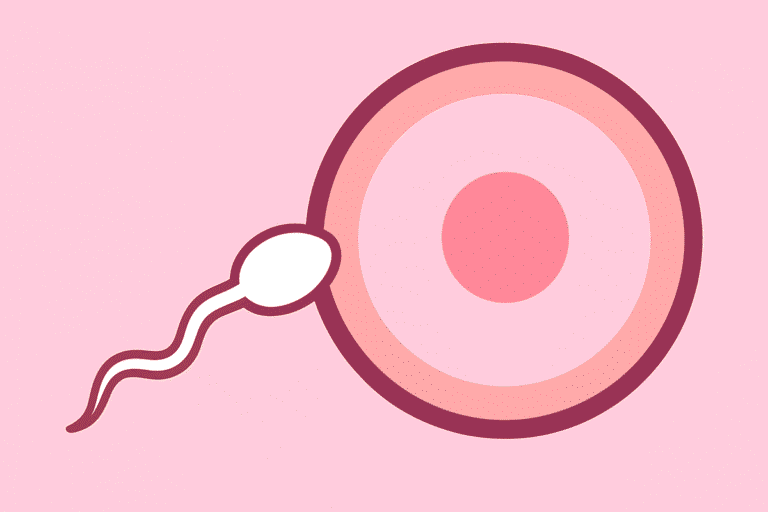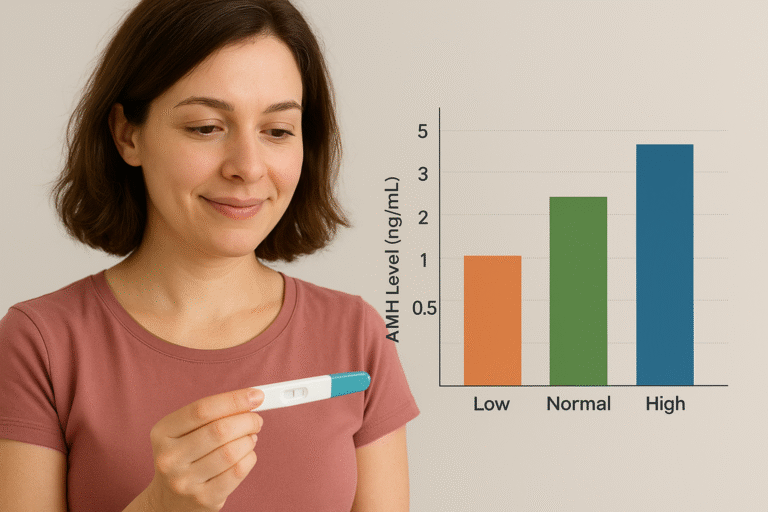Many women find the path to conception exciting, hopeful, and even challenging. One often asked question is if irregular cycles could compromise conception capacity. The brief response is yes; irregular menstrual cycles might complicate pregnancy. But why is this the case, and how may you respond? This post will look at the link between irregular periods and fertility, the underlying reasons, and actions you may take to raise your chances of
What Are Irregular Periods?
Usually lasting between 21 and 35 days, a normal menstrual cycle include ovulation around the middle. Conversely, irregular periods are distinguished from one another by:
- cycles either less than 21 days or more than 35 days.
- skipped times or erratic schedule.
- Strong, weak, or irregular bleeding.
Unpredictable ovulation—which is necessary for conception—may be difficultly predicted by irregular periods. Timing sex to fit the fertile window becomes difficult without knowing when ovulation happens.
How Do Irregular Periods Affect Fertility?
- Challenges in Ovulation
The most important problem with irregular cycles is the uncertainty of ovulation. Usually occurring 12 to 16 days before the onset of the next menstruation, ovulation is the release of a matured egg from the ovary. If your periods are erratic, ovulation could not occur at all (anovulation) or might happen at random times. This makes it more difficult to pinpoint your reproductive window—that is, the days most likely to conceive. - Hormonal Disorders
Hormonal abnormalities such as polycystic ovarian syndrome (PCOS), thyroid problems, or raised prolactin levels might show up as irregular periods. Important for ovulation and preserving a healthy pregnancy, hormones like oestrogen and progesterone might be disrupted by these disorders. - Less Frequent Ovulation
Women whose periods vary may ovulate less often than those with consistent cycles. This reduces the chances for pregnancy every year, thereby maybe extending the period of time it takes to conceive. - Influence on Egg Quality
Furthermore influencing egg quality are hormonal abnormalities linked to irregular menstruation. Bad egg quality could lower the chances of effective fertilisation and implantation.
Common Causes of Irregular Periods
Different elements might cause irregular menstrual periods; among these are:
- Polycystic Ovary Syndrome (PCOS): Common hormonal condition known as polycystic ovarian syndrome (PCOS) can lead to irregular cycles, anovulation, and infertility.
- Thyroid Disorders: Both hypothyroidism and hyperthyroidism can throw off menstrual regularity.
- Stress: Regular cycles result from interference with the hypothalamic-pituitary-ovarian axis brought on by chronic stress.
- Weight Fluctuations: Being notably underweight or overweight might throw off menstruation regularity and hormonal balance.
- Excessive Exercise: Too much exercise can cause irregular or nonexistent periods, especially for athletes.
- Perimenopause: As women approach menopause, diminishing ovarian activity causes periods to become irregular.
Can You Still Conceive with Irregular Periods?
Yes, it’s possible to conceive with irregular periods, but it may require more effort and planning. Here are some steps you can take to improve your chances:
- Track Your Cycle
Track your cycle and spot trends using tools include fertility apps, ovulation prediction kits (OPKs), or basal body temperature (BBT) monitoring. These instruments can assist identify ovulation even with irregular periods. - Address Underlying Conditions
See a doctor if you believe you have a thyroid issue or PCOS. Correct diagnosis and therapy can help control your cycle and boost fertility. - Lifestyle Modifications
Maintaining a healthy weight will assist control hormones and increase menstruation regularity by means of a better BMI.- Including yoga, meditation, or mindfulness into your regular schedule helps you to lower stress.
- Focus on a nutrient-dense diet supporting hormonal balance includes foods heavy in omega-3 fatty acids, antioxidants, and fibre.
- Medical Interventions
- Fertility Medications: Drugs like clomiphene citrate or letrozole can stimulate ovulation in women with irregular cycles.
- Assisted Reproductive Technologies (ART): In cases where natural conception is challenging, treatments like intrauterine insemination (IUI) or in vitro fertilization (IVF) may be recommended
When to Seek Help
See a specialist if your periods are irregular and you find it difficult to conceive. Early intervention will help your fertility path to be much different. See a healthcare practitioner to rule out underlying illnesses also if you experience additional symptoms including acute pain, unusually heavy bleeding, or abrupt changes in your cycle.
Conclusion
Though they might interfere with your hopes of creating a family, irregular periods can in fact influence your capacity to conceive. Your chances of conceiving will increase if you know the reasons of erratic cycles and act early to solve them. Every woman’s body is different, hence with the correct help and direction you may negotiate the difficulties of irregular periods and get closer to realising your dream of fatherhood. Should this article prove useful, forward it to others who might find it so. And feel free to drop a note below should you have any queries or personal experience to provide. Let’s help one another on this road towards parenthood





[…] Also read: How Do Irregular Periods Affect Conception? […]
[…] Also Read : How Irregular Periods Effect Conception […]
[…] Also Read: Effect Of Irregular Periods on Fertility […]
[…] Also read: How Do Irregular Periods Affect Ovulation and Conception? […]